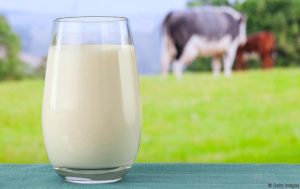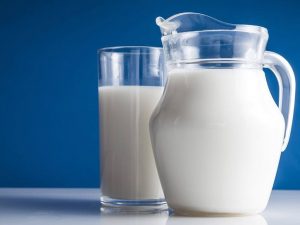
The Punjab government faces pressure to end its role in fixing prices of milk and meat or else a World Bank loan worth $300 million may be completely derailed, which indicates weakening control over eco- nomic decision making due to high indebtedness of Pakistan.
The irony is the loan amount that is directly linked with leaving the prices of the essential consumable goods at ‘market forces’ is mere $2.5 million or Rs415 million at the current exchange rate, showed the documents of the World Bank and the provincial government.
Currently, milk and meat prices are fixed by district administration under Price Control and Prevention of Price Profiting and Hoarding Act, 1977. Under a condition by the World Bank, the government of Punjab should end its role in fix- ing the prices and let the market forces decide.
Pakistan has weak regulatory sys- tems, which leave consumers at the mercy of market players. The government of Punjab took a $300 million loan from the World Bank in the name of Strengthening Markets for Agriculture and Rural Transformation (SMART) pro- gramme. The SMART programme, which became effective in February 2018, is in the third year of its implementation.
“Since its inception, the programme has achieved 35% disbursement or $107.2 million and has been ranked as moderately satisfactory,” accord- ing to a letter written by Planning and Development Board of Punjab Chairman Hamid Yaqoob Sheikh to Punjab Agriculture Department.
In order to achieve the targets timely, laxity on part of any of the implementing departments may tantamount to hampering the loan proceeds of the programme in fu- ture, cautioned the chairman to the Agriculture Department secretary. He stated that the target of im- proving market conditions for meat and raw milk is facing “considerable delays”, which could affect $2.5 mil- lion loan component. The deadline to de-cap the prices was June 2019.
“It would be highly appreciated if the livestock department could initi- ate all necessary actions to prepare a restructuring proposal regarding revisions in the targets and timelines along with justification for future deliberations before negotiating with the World Bank.”
It will be a political decision whether the meat and milk prices would be determined by the gov- ernment or the market forces, said Sheikh while talking to The Express Tribune
.But he said that a decision has to be taken soon as Pakistan was paying commitment charges on the undisbursed amount to the lender. Over a period of time, Pakistan’s reliance on foreign loans has significantly increased, which has shifted the decision making power to the lenders from the legislators.
Pegging uncapping of meat and milk prices with just $2.5 million amount shows the indebtedness of the country where even small deci- sions are taken in return for loans. The external public debt has mounted to 36% of the total public debt at the end of second year of the PTI government, which just two years ago was 32.2%.
During the July-August period of this fiscal year, Pakistan received over $2.2 billion loans and share of such programme loans was alarmingly 94%. Loans like SMART are taken for building foreign exchange reserves but in return, the country is gradually conceding control over economic decision making.
The planning board chairman de- sired that a decision of the provin- cial cabinet may be taken on the issue of de-capping the prices.
In September 2016, then Punjab chief minister Shehbaz Sharif had also set up a committee to review the possibility of de-capping the prices of milk and meat. The committee had the mandate to review policy options for capping or de-capping the prices of both es- sential items. The committee had recommended to immediately de-cap milk and meat prices.
The livestock constitutes 11% of the national economy and accounted for about 59% of agricultural value added at the micro level. The increase in milk and meat prices as a result of de-capping could stoke in- flation, which is already increasing. But Sheikh said that various technical studies have established that the prices would not increase as a result of de-capping.
Farmers focus on raising animals for getting meat and milk products mainly for their own consumption and to get cash income through small scale sales. There are very few progressive farmers, which are run- ning the business of dairy farming in a professional manner, according to a study funded by the United States. This study became the base for the World Bank decision to link its loan amount with a decision on ending the government’s role in de- termining the prices.
One of the components of the SMART loan was to bring transparency in Punjab wheat operations by shifting wheat stocks to private silos and to reduce the size of wheat procurements to end rent seeking.
The World Bank has linked the disbursement of $70 million loan with reduction in wheat stocks to just two million tons. But the Punjab government had to procure over four million tons of wheat from the farmers to ensure country’s food security.
The government of Punjab will also have to a take a decision on this account. The Express Tribune had reported this issue of wheat stock reduction condition in January this year.
























